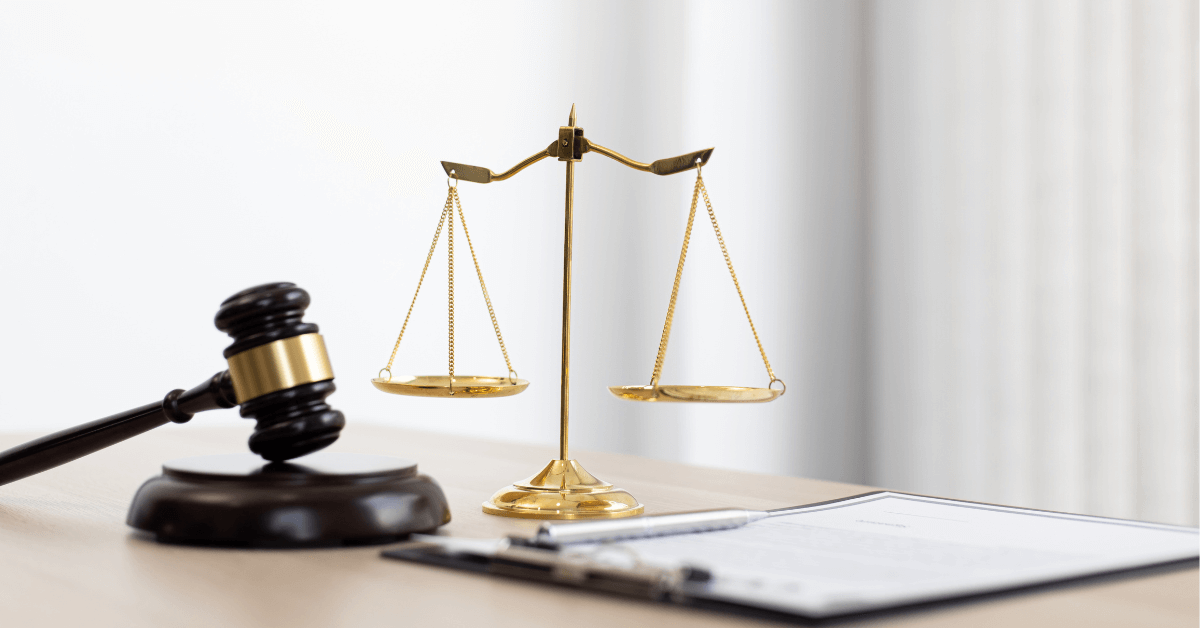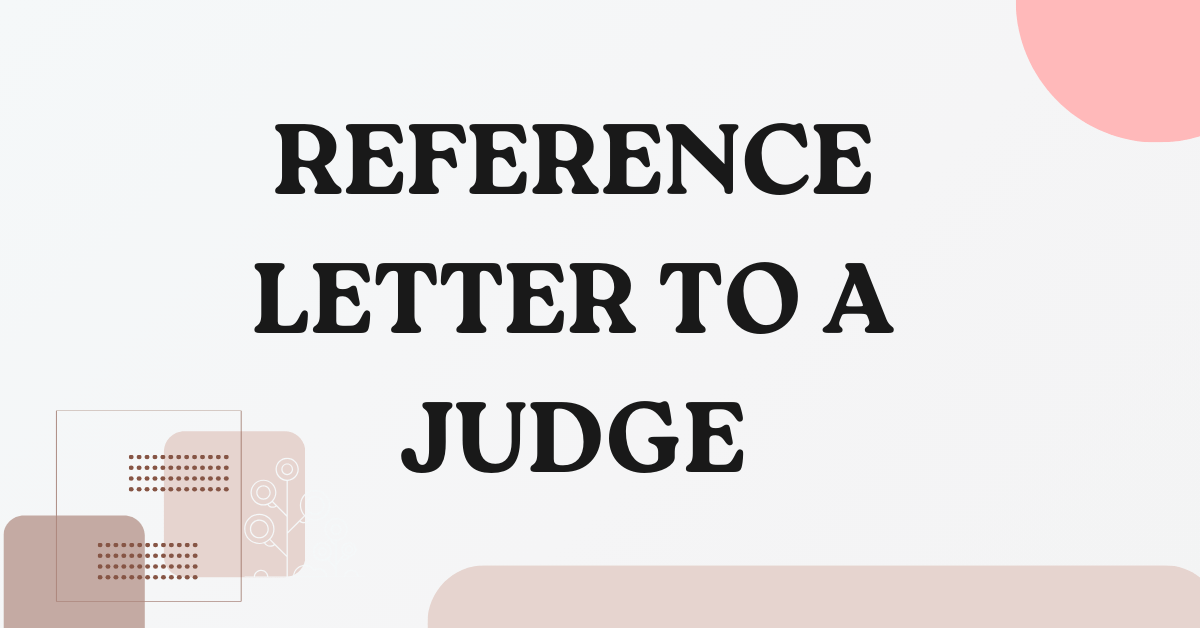A reference letter to a judge is a formal document submitted to a court on behalf of an individual facing legal proceeding. Its purpose is to provide the judge with additional information about the person’s character, achievements, or circumstances that may impact the legal decision at hand. This letter serves as a means of vouching for the individual’s character and can influence the court’s perception during sentencing or other legal considerations.
In this article, we aim to simplify the process of crafting a reference letter to a judge by offering templates, examples, and samples. Writing such a letter can be a daunting task, and our goal is to assist users in expressing their thoughts effectively. By providing a variety of letter samples, we intend to make it more accessible for individuals to articulate their support or perspective in a manner that aligns with legal and professional standards.
Navigating the complexities of legal matters requires clarity and precision. Our collection of reference letter samples is designed to be a helpful resource, ensuring that those contributing to the legal process can convey their sentiments in a manner that is both impactful and in accordance with established guidelines.

Sample of Reference Letter to a Judge
[Your Name]
[Your Address]
[City, State, Zip Code]
[Email Address]
[Phone Number]
[Date]
[Judge’s Full Name]
[Judge’s Title]
[Court Name]
[Court Address]
[City, State, Zip Code]
Subject: Character Reference for [Full Name of the Person]
Your Honor,
I am writing this letter to express my sincere support for [Full Name of the Person]. I understand the gravity of the situation at hand, and I believe it is crucial to provide you with additional insights into [his/her] character.
I have known [Full Name] for [number of years] in the capacity of [your relationship, e.g., friend, colleague, neighbor]. During this time, I have had the opportunity to witness [his/her] unwavering commitment to [positive traits, e.g., integrity, honesty, and hard work]. [He/She] has consistently demonstrated a strong sense of responsibility and has been an asset to our [community/workplace/etc.].
[Provide specific examples or anecdotes that highlight the person’s character and positive attributes. Focus on traits relevant to the case.]
In conclusion, I firmly believe that [Full Name] is a person of high moral character and integrity. I trust that [he/she] will continue to contribute positively to society and undergo any necessary processes to learn and grow from this experience.
Thank you for considering my perspective. If you require any further information, please feel free to contact me at [your phone number] or [your email address].
Sincerely,
[Your Full Name]
[Your Signature – if sending a hard copy]
How to Write a Reference Letter to a Judge

1. Understanding the Purpose: Crafting a Reference Letter for Legal Support
When called upon to write a reference letter for a judge, it’s essential to grasp the purpose behind it. These letters aim to provide the court with valuable insights into an individual’s character, emphasizing positive traits that may influence legal decisions. Understanding this purpose is the first step in creating a meaningful and impactful reference letter.
2. Establishing Your Relationship: Personalizing the Connection
Begin your letter by establishing the nature of your relationship with the individual in question. Whether a friend, colleague, or neighbor, clearly state how you know them. This personal touch adds credibility to your reference and helps the judge contextualize the perspective you bring to the case.
3. Highlighting Positive Attributes: The Power of Anecdotes
Use specific examples and anecdotes to highlight the positive attributes of the person you’re writing about. Delve into instances that showcase their integrity, responsibility, or any other traits relevant to the legal matter at hand. Such vivid illustrations make your letter more compelling and memorable.
4. Expressing Trust and Confidence: Affirming Belief in Character
Articulate your belief in the individual’s character. Express your trust that they will navigate the legal process with integrity and a commitment to growth. This part of the letter serves to reassure the judge that the person has a supportive network and the potential for positive contributions to society.
5. Adhering to Professional Language: Striking the Right Tone
Maintain a professional tone throughout the letter. While adding a personal touch is crucial, it’s equally important to use language that is respectful, clear, and aligned with the formality of a legal document. Striking the right balance ensures that your letter is both empathetic and appropriate for the courtroom.
6. Structuring the Letter: A Logical Flow
Organize your letter with a logical flow. Start with a concise introduction, followed by detailed anecdotes that emphasize positive traits. Conclude by summarizing your support and willingness to provide further information if required. This structured approach enhances readability and comprehension.
7. Proofreading and Final Touches: Ensuring Perfection
Before submitting the reference letter, thoroughly proofread it for any grammatical errors or inconsistencies. Attention to detail is crucial, as a well-crafted and error-free letter adds to its credibility. Once satisfied, your letter is ready to serve as a valuable contribution to the legal process.
Remember, writing a reference letter for a judge is an opportunity to contribute positively to someone’s legal journey. Approach it with sincerity, clarity, and a genuine desire to aid the court in making informed decisions.
FAQs about a Reference Letter to a Judge
When it comes to writing a reference letter to a judge, people often have questions about the process and expectations. Here are some frequently asked questions to guide you through the intricacies of this important task:
1. What is the Purpose of a Reference Letter to a Judge?
In my opinion, a reference letter to a judge serves the purpose of providing valuable insights into an individual’s character. It aims to help the court understand the person from a personal perspective, emphasizing positive traits that may influence legal decisions.
2. How Should I Address the Judge in the Reference Letter?
I believe it’s crucial to maintain a respectful and formal tone when addressing the judge. Begin with a proper salutation, such as “Your Honor,” and ensure that the language used throughout the letter is appropriate for a legal document.
3. What Information Should Be Included in the Reference Letter?
In my opinion, a well-crafted reference letter should include details about the writer’s relationship with the individual, specific examples highlighting positive attributes, and a clear expression of trust in the person’s character. This information provides a comprehensive view for the judge.
4. Can I Include Personal Anecdotes in the Reference Letter?
I think personal anecdotes can be powerful in conveying positive traits. However, it’s essential to ensure that these anecdotes are relevant to the legal matter at hand and contribute to the overall positive image of the individual.
5. How Long Should a Reference Letter to a Judge Be?
In my opinion, a reference letter should be concise and focused. While there’s no strict word limit, it’s advisable to keep it to a page or two. This ensures that the letter remains impactful and is more likely to be thoroughly read and considered by the court.
Remember, writing a reference letter to a judge is a responsibility that should be approached with sincerity and a genuine desire to assist the legal process. These questions and answers aim to provide clarity and guidance for those undertaking this important task.
RELATED:
Letter of Recommendation to a Judge
Community Service Letter to Court
Demand Letter to Insurance Company
